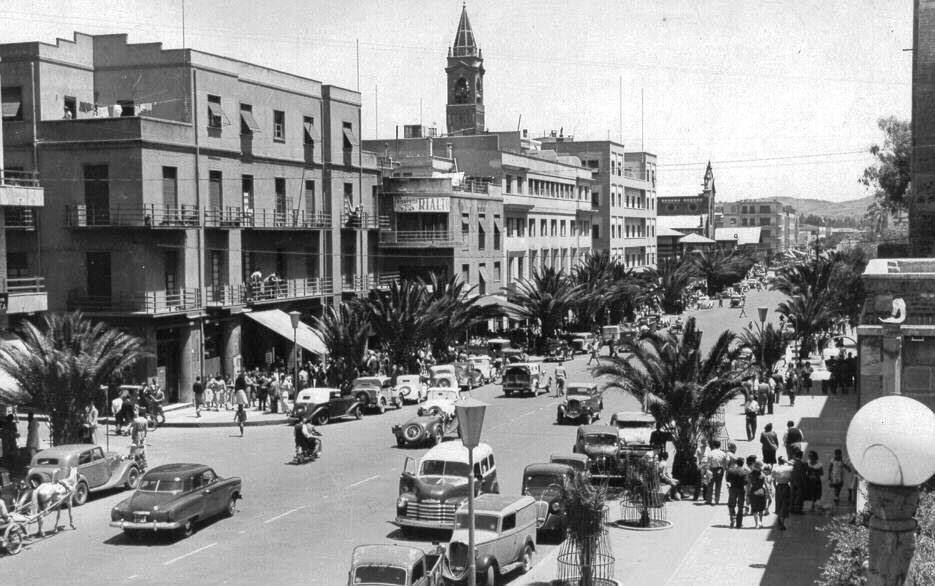November 14, 2017
In the years to come, after winning Eritrea, the British became obsessed with it. Those who claim that they were entrusted by the Europeans to care for Eritrea, were not sitting idle.
According to Sylvia Pankhurst (in her book, Eritrea on the Eve), the naval base in the port of Massawa, built to hold 1,000 sailors, had been bulldozed to the ground. Navy headquarters, a 500-bed hospital with its air-conditioning plant, the oil storage tankers, main water supply tanks, electricity units, naval warehouse, customs offices –more than 75 building in all –had been reduced to dust and rubble.
She alleges that they spared no time in dismantling industrial equipment and stripping wood, iron, steel, and gone to benefit British-run territories in Africa, the Middle East and Asia.
She said, in Massawa, they dismantled cement factories and sent to Sudan, an aerodrome (a small airport) had been sold to Egypt. A dredger (machinery that works from inside the sea) had been sold; a floating dock and two giant cranes had been dispatched to Pakistan, Egypt and Malta; while 500 oil reservoirs had been razed and 20 radio stations dismantled. Furthermore, along the coast at the town of Zula, 400 Italian officers’ houses had been demolished; in Fatma Dari, a potash factory sold
In Zula, 5.7 km of rail tracks 850 railway points, 3 tons of bolts, 20 turntables and 71 trucks had been sent to Kenya. Another 1,500 m of barbed wire, 3 small cranes, 1 steel Jetty, 1 steel signal, and 1 steel hut had also been sold back to Italy.
In Asab, she claims, a radio station had been transported to Kenya, salt factory dispatched to Aden and the motors of scuttled ships removed for sale. Three hundred railroad wagons, plus rail construction material imported by the Italians to connect Agordat with the Ethiopian town of Gonder, had been sold off, as had the motors running Eritrea’s remarkable 75 km (47 mi) 1937–1941 Asmara – Massawa aerial ropeway (La Teleferica).
In Gora, another aerodrome (small airport) had been demolished and exported to India.
In total, they have dismantled and exported more than 600 heavy and light industries. Trevaskis, who served as a British colonial officer in Eritrea, in his book Eritrea: A colony in Transition, lets slip the fact that Eritrea’s gold production in Bisha had been crippled and the allied forces removed the mining equipment, whose replacements were difficult and often impossible to obtain. The Eritrean fishing industries were similarly crippled by the acquisition of irreplaceable equipment. He estimates that the total lost assets were anyway: 1,700-million African shillings (the equivalent of 2.26 million British pounds or 3.84 million US Dollars.)
Did the British act legally? Appointed by the UN as care takers, the British administration had the duty to preserve and cherish assets in situ. Obviously, it has abused that trust. The reason behind all these hideous sabotages appears to make Eritrea crippled; and then, once crippled, they could make their case that Eritrea is unable to stand on its own; therefore, it must be annexed with Ethiopia --and that is exactly what they did. The evidence is the British government received from Ethiopia a sum of £950,000 (a hefty £1.2-million or 2.01-million dollars in today’s currency) when it finally ceded control of Eritrea.
Salutations!
Source: Madote.com






